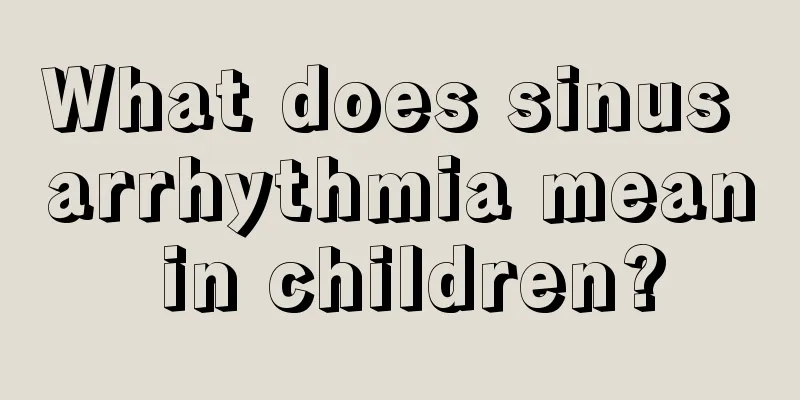One-year-old baby's brain development

|
The intellectual development of a one-year-old baby concerns every parent, because every parent hopes to have a smart baby and a natural genius. But in fact, if intelligence is well developed when a child is young, the child will naturally be smart when he grows up. A baby over one year old can already walk on his own and express his needs. So what are the standards for the brain development of a one-year-old baby? Mothers can refer to the intellectual development standards for babies aged 1-1.5 years old. Motor: Baby needs help eating with a spoon, can scribble with a pen, can draw on paper with a crayon, can turn pages of a book (perhaps two or three pages at a time), can stack two square pieces of wood, and can hold a cup with his fingers, but his grip is unstable and tilted, and he often spills the contents of the cup. Language: At this time, parents should consciously use more language to guide their children's actions. For example, ask your baby to “bring the small basin over here”, “get slippers for mommy”, “go play outside with your friends”, etc., to help your baby establish the concept of doing things according to instructions. At the same time, we should also pay attention to the learning and use of some negative words, so that the baby can truly understand concepts such as "have-no, want-don't want, yes-no", and learn to express them correctly in language. Social Now your baby's pair of walking little feet can take him everywhere. Adults should seize this opportunity to cultivate their babies' social intelligence. At this time, babies will imitate their parents and their peers around them, so you must set a good example for your baby in terms of how to behave and guide him/her subtly. Encourage your baby to go out and play. Babies at this stage like it very much and can easily run outside to play with others. Adults should often take their children to parks, community gardens and other places, and let the babies play with others. This will enable the babies to learn a lot of social knowledge. Psychological babies can already accurately express emotions such as anger, fear, jealousy, anxiety, sympathy, etc.; they like to imitate adults' actions; they can follow instructions and help get things; they can express their own emotions, and sometimes they lose their temper and throw things; they are curious about strangers. He can recognize other people in the family, will bring a stool for adults to sit on, and will tell adults when he needs to urinate or defecate. Has memory for some images; can play simple imaginative games, such as patting or shaking a doll; can find objects in cabinets or cupboards; and poke holes with fingers or objects. |
<<: Four-month-old baby's brain development
Recommend
Symptoms of zinc deficiency in 3-month-old babies
As parents, we should pay attention to the three-...
White spots on the child's face
Many parents will observe that white patches ofte...
Can babies eat lamb? Please learn the correct way to eat
For adults, mutton is a very good food, but for c...
What should children check for stomach pain
Although the living environment is getting better...
What to do if your 10-month-old baby can't roll over
The baby will begin to grow slowly after birth, s...
What is the cause of trigger finger in children?
Trigger finger is generally caused by abnormal de...
What to do if your three-year-old baby has gastroenteritis
In the summer, the weather is always too hot for ...
What is the reason why children sweat a lot in summer?
I believe that parents know their children’s phys...
Is it normal for a child to poop several times a day?
As mothers, from the moment their children are bo...
The reason why babies can't sit still during early childhood education
When children are still very young, mothers like ...
What to do if your baby coughs after sweating
Many parents will find that their babies will hav...
My baby's heart is beating fast, what's going on?
Heartbeat is an important function of the heart. ...
Is it okay to use a hot towel when the baby has a fever?
Many mothers will feel nervous and worried when t...
What to do if your 3 month old baby has a low fever
When the baby is more than three months old, he i...
What to do if your 4-year-old child drools
Children may develop various bad habits. Recently...









